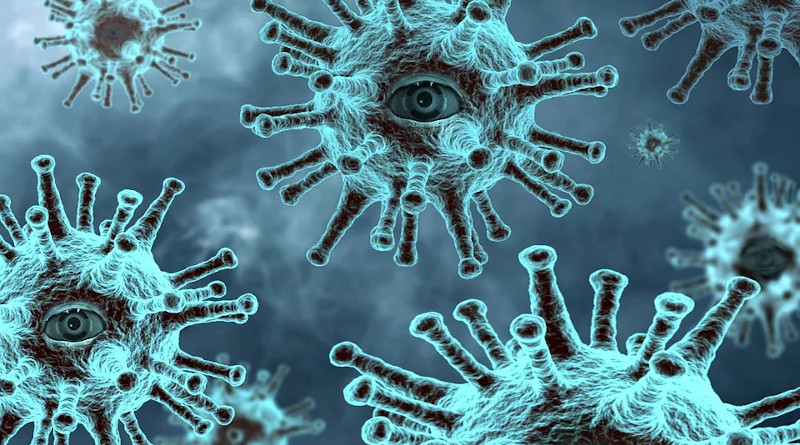Backwash Of Uncertainty: Exploitation Or Service? – Analysis
By RSIS
Blame games and misinformation during the pandemic are both highlighting and deepening divisions. While subversive groups appeal to frustrations and exploit gaps in state-led responses, civil society organisations are stepping in to provide where the state falls short.
By Cameron Sumpter and Jennifer Yang Hui*
Pandemics provide the perfect breeding ground for conspiracy theories, and the enormity of the current crisis is supplying ample space for opportunists to manipulate narratives and advance their agenda. Whether provocative ideologues, seditious fringe groups or violent extremists, the general goals are to energise support by demonising others and undermine trust in state institutions.
Certain organisations are also capitalising on shortfalls in state-led responses by appealing to hearts and minds through social service provision and charity. An effective counterbalance to the influence of intolerant activists may not come from national governments but from more constructive non-state actors. As the coronavirus response increasingly stretches government capacity and public trust erodes, inclusive civil society organisations can step in to provide transparent communication and support.
Finger-pointing, Rabble Rousing and Extremism
The coronavirus pandemic is proving suitably malleable to serve a range of divisive positions, from West to East. Far-right groups in the United Kingdom are blaming migrants for the spread, while arguing that authoritarian governments are responding more effectively than liberal democracies. To some others, COVID-19 is a Jewish tool to expand influence and realise world domination.
Anti-Chinese tropes have emerged in Southeast Asia, including Vietnam, where similar theories of China poisoning food imports have circulated for years. Comparable sentiment has combined with allegations of government complicity in Indonesia. One popular post claimed the Jokowi administration had designated 19 airports as special entry points for weaponised Chinese migrants infected with the virus.
Religion is another flashpoint. Facebook users in Myanmar argued that a mural designed to raise awareness of the virus was really an insidious message from a Kachin State Christian pastor designed to denigrate Buddhists. While Hindu nationalists in India have scattered rumours of Muslims intentionally spreading the virus among communities.
Islamist extremists in Indonesia believe the pandemic is a sign of imminent end-times, a theory central to the ISIS identity which was supposed to involve an epic battle with ‘crusaders’ in a small Syrian town a few years ago. Apocalyptic concepts have become especially popular among Indonesian jihadis in recent years, including the instigator of 2018’s family suicide bombings in Surabaya.
From Undermining Messages to Appropriating Services
COVID-19 is placing extraordinary burdens on national governments to contain the outbreak and address an unprecedented economic fallout. Already rising inequality is set to worsen around the world, as millions lose their jobs and the wealthy exploit fresh investment opportunities.
When authorities inevitably fall short of providing sufficient support, non-state actors and social movements with narrow worldviews will try to fill the gaps and win hearts. Some are well on their way.
The Taliban released footage of its medical teams handing out masks and soap to people in an Afghan village, where a spokesperson said the group had also been raising awareness and distributing informative leaflets. Taking matters a few steps further in Lebanon, the Shi’a militant organisation Hezbollah is operating testing centres, ambulances with ventilators and a 25,000 strong army of volunteers.
In Indonesia, the Islamic Defenders Front (FPI) has called on community authorities to take control by implementing their own lockdowns, defying advice from the government. Competing against state measures, FPI has provided disinfecting services in villages and community mosques. And an Indonesian pro-ISIS charity called Gashibu has been donating food to families and teachers struggling with the pandemic’s impact.
Transparency and Civil Society Safeguards
The most promising responses to both division-seeking rumours and the exploitation of service provision deficits have so far come from civil society. Kawal-COVID-19, an initiative made up of data, communication and health practitioners, is providing accurate information on the pandemic in Indonesia. The group is partnering with other ground-up initiatives such as Masyarakat Anti-Fitnah Indonesia (Mafindo), an established anti-hoax movement, to counter COVID-19 misinformation.
Another organisation called Equality Labs has released a deck of information cards in different South Asian languages for sharing on social media to combat the ‘infodemic’. In Brazil, the Coletivo Rapo Reto, an initiative focused on police transparency, has repurposed its platform to counter misinformation during the COVID-19 outbreak.
Grassroots movements are also promoting tolerance and working to reduce societal divisions during the pandemic. The Gusdurian Network, which promotes interfaith dialogue and tolerance across Indonesia, has been active in providing basic necessities to those affected, as well as equipping community entrepreneurs to cope with the economic impact. A similar endeavour in Malaysia called #KitaJagaKita is mobilising suitable volunteers and NGOs and connecting them with particular people and communities in need.
Division, Resilience and Inclusion
In recent years, identity politics and structural inequalities have combined with an anarchic online public sphere to create and widen divisions in societies around the world. A number of movements and networks have emerged and/or grown by ramping up hatred towards respective scapegoats – whether defined by ethnicity, religion, nationality or political position.
The COVID-19 pandemic appears to be accelerating this culture of blame, and one casualty in many nations will be public trust in governments to communicate accurate information, deliver support and maintain services. Subsequent vacuums will attract a variety of motivated takers, especially those who can tap into emotions through cynical propaganda.
Resilience in the post-pandemic world may hinge on a government’s ability to empower civil society actors by providing space, legitimacy, and faith in their contributions. Stronger relationships between national governments and grassroots associations would help to restore trust and potentially lead to more inclusive governance.
*Cameron Sumpter is a Research Fellow and Jennifer Yang Hui an Associate Research Fellow with the Centre of Excellence for National Security (CENS) and Future Issues and Technology (FIT) Cluster, S. Rajaratnam School of International Studies (RSIS), Nanyang Technological University (NTU), Singapore. This joint contribution by CENS/FIT is part of an RSIS Series.

